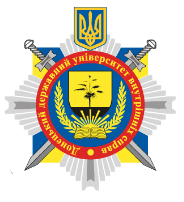ВИКОРИСТАННЯ ТЕХНОЛОГІЙ BLOCKCHAIN ДЛЯ ПОКРАЩЕННЯ ЗАХИСТУ ІНТЕЛЕКТУАЛЬНОЇ ВЛАСНОСТІ В УКРАЇНІ
DOI:
https://doi.org/10.32782/2523-4269-2022-80-3-27-32Ключові слова:
захист інтелектуальної власності, blockchain-технології, інформаційні системи захисту, інноваційні захисні технології, смарт-контракти.Анотація
У зв’язку з масовим поширенням цифрових технологій у всіх сферах життєдіяльності суспільства останнім часом активно обговорюється розвиток інноваційних інформаційних систем захисту, зокрема й із застосуванням blockchain. Доведено, що захист права інтелектуальної власності є значно ускладненим в окремих сферах, а технології blockchain дозволяють забезпечувати його там, де правовий захист, на жаль, є недієвим. Є необмежена кількість можливостей застосування blockchain-технологій у цій сфері, тому запровадження та подальший розвиток технологій blockchain у сфері захисту прав інтелектуальної власності в Україні – це одне із пріоритетних завдань держави.
Посилання
Артамонова Н.О., Капінос М.М. Технологія блокчейн у сфері інтелектуальної власності. Побудова інформаційного суспільства: ресурси і технології : матеріали XVIІ міжнародної науково-практичної конференції, м. Київ, 27 вересня 2018 р. МОН України; УкрІНТЕІ. Київ : УкрІНТЕІ, 2018. C. 61–66.
Жогов В.С. Технологія блокчейн як сучасний засіб підвищення ефективності забезпечення реалізації та захисту об’єктів авторських і суміжних прав, виражених у цифровій формі. 2020. С. 209–214.
Яворський В.В. Дослідження технології блокчейн для проєктування автоматизованих освітніх систем. Харківський національний університет радіоелектроніки, 2021. 95 c.
Arseven M. The Role of Blockchain Technology in Intellectual Property Protection. 2021. URL: https://www.lexology.com/library/detail.aspx?g=512ab4b1-d234-4962-a4ff-0f4836618db9 (дата звернення: 28.03.2022).
Tolek J. The Use Of Blockchain In Trademark And Brand Protection. 2021. URL: https://www.jdsupra.com/legalnews/theuse-of-blockchain-in-trademark-and-1929008/ (дата звернення: 28.03.2022).
Rose A. Blockchain: Transforming the registration of IP rights and strengthening the protection of unregistered IP rights. 2020. URL: https://www.wipo.int/wipo_magazine_digital/en/2020/article_0002.html (дата звернення: 28.03.2022).
Frankenfield J. Smart Contracts. Investopedia. 2022. URL: https://www.investopedia.com/terms/s/smart-contracts.asp (дата звернення: 28.03.2022).
Clark B. Blockchain and IP Law: A Match made in Crypto Heaven? 2018. URL: https://www.wipo.int/wipo_magazine/en/2018/01/article_0005.html (дата звернення: 28.03.2022).
Літошенко А.В. Технологія blockchain: переваги та неочевидні можливості використання у різних галузях. Економiка та держава. 2017. С. 77–79.
Уткіна М., Харченко А. Blockchain як революційне явище у сфері технологій та права інтелектуальної власності. Молодий вчений. 2020. № 4 (80). С. 471–474.
Дорош К.А. Комп’ютерні засоби захисту інформації з використанням технології Blockchain. КПІ ім. Ігоря Сікорського. 2021. 77 с.
Шкіндель В.М. Дослідження технології розподіленого реєстру для застосування у сфері навчання. КПІ ім. Ігоря Сікорського. 2020. 123 с.
Prasad Mr. S. The Future of Blockchain in Intellectual Property. Five applications of block chain in intellectual property (IP). 2021. URL: https://www.automation.com/en-us/articles/january-2021/the-future-of-blockchain-in-intellectual-property (дата звернення: 07.04.2022).
Зінич Л.В. Перспективи використання технології блокчейн для захисту прав інтелектуальної власності в Україні. Актуальні проблеми вдосконалення чинного законодавства України. 2021. № 55. С. 14–21.
Making the most of the EU’s innovative potential – An intellectual property action plan to support the EU’s recovery and resilience (COM/2020/760). Communication from the Commission to the European Parliament, the Council, the European Economic and Social Committee and the Committee of the Regions. 2020. URL: https://eur-lex.europa.eu/legal-content/EN/ALL/?uri=CELEX:52020DC0760 (дата звернення: 07.04.2022).





